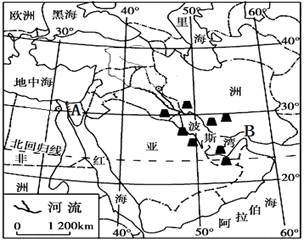Why I Don’t Spare “Spare Change”
“Poor but honest. ” “The deserving poor.” These words always come to my mind when I think of “the poor”. But I also think of people who, perhaps through alcohol or drugs, have ruined not only their own lives but also the lives of others in order to give way to their own pleasure. Perhaps alcoholism and drug addiction really are “diseases”, as many people say, but my own feeling- based, of course, not on any serious study-is that most alcoholics and drug addicts belong to the “undeserving poor”. And that is largely why I don’t give spare change to beggars.
But surely among the street people there are also some who can rightly be called “deserving”. Deserving what? My spare change? Or simply the government’s assistance? It happens that I have been brought up to believe that it is proper to make contributions to charity(慈善机构), but if I give some change to a beggar, am I making a contribution to charity and thereby helping someone, or, am I perhaps simply encouraging someone not to get help? Or, maybe even worse, am I supporting a cheat?
If one believes in the value of private charity, one can either give to needy people or to charitable organizations. In giving to a beggar one may indeed be helping a person who badly needs help, but one cannot be certain that one is giving to a needy person. In giving to an organization, on the other hand, one can feel that one’s money is likely to be used wisely. True, facing a beggar one may feel that this particular unfortunate person needs help at this moment-a cup of coffee or a sandwich-and the need will not be met unless I put my hand in my pocket right now. But I have come to think that the beggars whom I meet can get along without my spare change, and indeed perhaps they are actually better off for not having money to buy alcohol or drugs.
I know nothing about these beggars, but it’s my impression that they simply prefer begging to working. I am not generalizing about street people. I am talking about the people whom I actually meet. That’s why I do not give “spare change”, and I don’t think I will in the future.
68. What does the author think of beggars who take drugs?
A. They should be given a check-up. B. They really need money to live.
C. They have no pleasure in life. D. They are not worth helping.
69. Why doesn’t the author give money to street people?
A. He doesn’t think they need help. B. He doesn’t have enough money to give.
C. He is not convinced they will use it rightly.
D. He believes they can get help from the government.
70. In the second paragraph, the author presents his idea by_____.
A. asking questions for people to think about B. giving examples to support his argument
C. raising questions and answering them D. expressing his opinions directly
71. Which of the following opinions does the author accept?
A. Drug addiction is a disease. B. Some street people are poor and needy.
C. Most beggars have received enough help.
D. Charitable organizations handle money properly.

